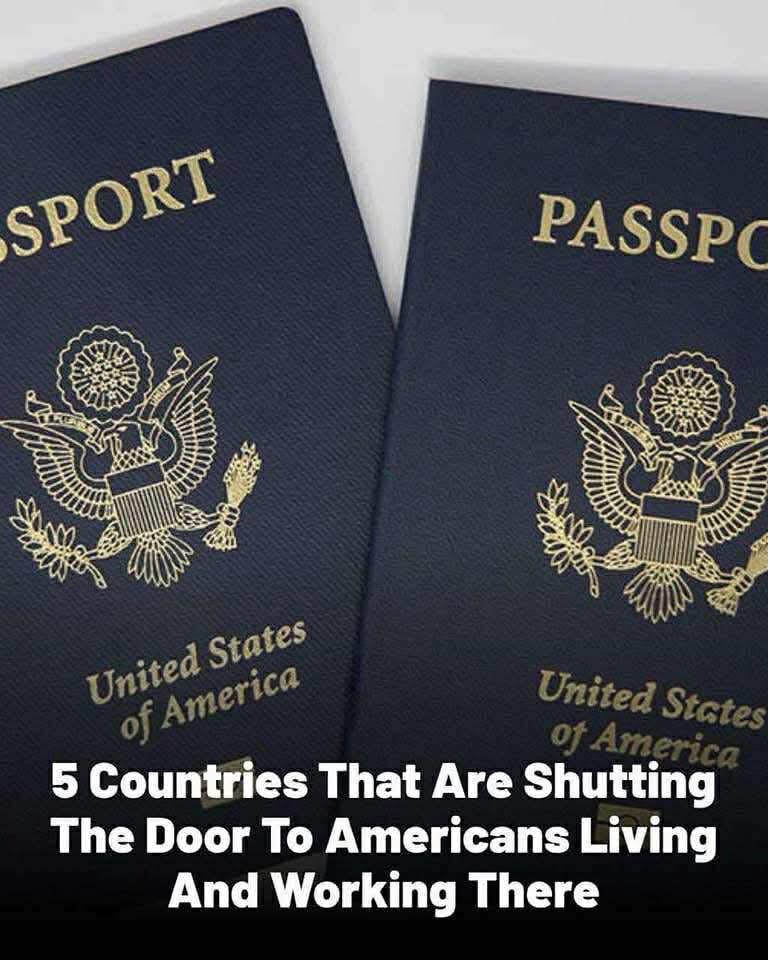For many years, holding a U.S. passport was seen as a golden ticket, granting Americans the privilege to live and work in countries around the world. However, due to changing political landscapes and concerns over job competition, several countries are now making it harder for Americans to settle there. From stricter visa requirements to tougher enforcement of existing laws, here’s a look at five countries that are tightening their rules for U.S. citizens.
1. Japan: A New Visa System for Visitors
Japan has long been a popular destination for American tourists and expatriates. However, the country is now introducing the Japan Electronic System for Travel Authorization (JESTA), which is set to launch by fiscal year 2028. Under this system, visa-exempt visitors, including Americans, will need to submit key information online in advance—such as their travel purpose and accommodation details—before being granted approval to enter the country.
This new system is part of Japan’s effort to manage the influx of visitors more efficiently and ensure that travelers have a legitimate purpose for their visit.
2. Canada: Stricter Immigration Rules
Once considered an easy neighbor to cross into, Canada is now imposing stricter protocols for asylum seekers, workers, and students. Although the country is not completely closing its doors to Americans, the pace of immigration has slowed. Delays in the approval of temporary foreign worker programs, student visas, and other immigration applications have become more common, creating challenges for those looking to move or work in Canada.
These changes have shifted Canada’s welcoming stance, and many Americans now face longer waits for approval or entry.
3. UAE: Stricter Residency Rules and Tax Changes
The United Arab Emirates (UAE), particularly Dubai, has long been a popular destination for Americans seeking tax-free jobs. However, in 2025, the country has begun enforcing stricter residency rules. For most individuals, unless they are in high-demand sectors like tech or healthcare, or own a large business, extending a visa will be difficult.
Additionally, the introduction of a 9% corporate tax has diminished the UAE’s appeal as a low-tax paradise for expatriates. As a result, many Americans are being asked to leave if they do not make significant contributions to the country’s economy.
4. Russia: Diplomatic Tensions and Slow Visa Approvals
Russia, which has placed the U.S. on its list of “unfriendly countries,” is making it increasingly difficult for Americans to live and work there. While the number of Americans applying for visas has increased in 2024, the process of visa application and approval has become much longer and more complicated.
Additionally, sanctions and government restrictions are forcing many U.S. businesses to shut down in Russia, and fewer American residents are having their visas renewed. Political tensions continue to make it challenging for U.S. citizens to maintain a presence in Russia.
5. China: Visa Denials and Unpredictable Treatment
China’s treatment of foreigners has been inconsistent over the years, but recent developments have made life more difficult for American citizens and businesses in the country. Many U.S. citizens have reported being denied visa renewals, and others have been given only a few days’ notice to leave the country. This has made it difficult for Americans to plan long-term stays in China.
The situation worsened after the Trump administration’s imposition of high tariffs, leading to strained relations and even more obstacles for American businesses operating in China.
As countries tighten their borders and revise their immigration policies, Americans looking to live or work abroad may find themselves facing more challenges than before. It’s important to stay updated on these changes and understand the evolving landscape of global immigration.
Please SHARE this article with your family and friends on Facebook!

